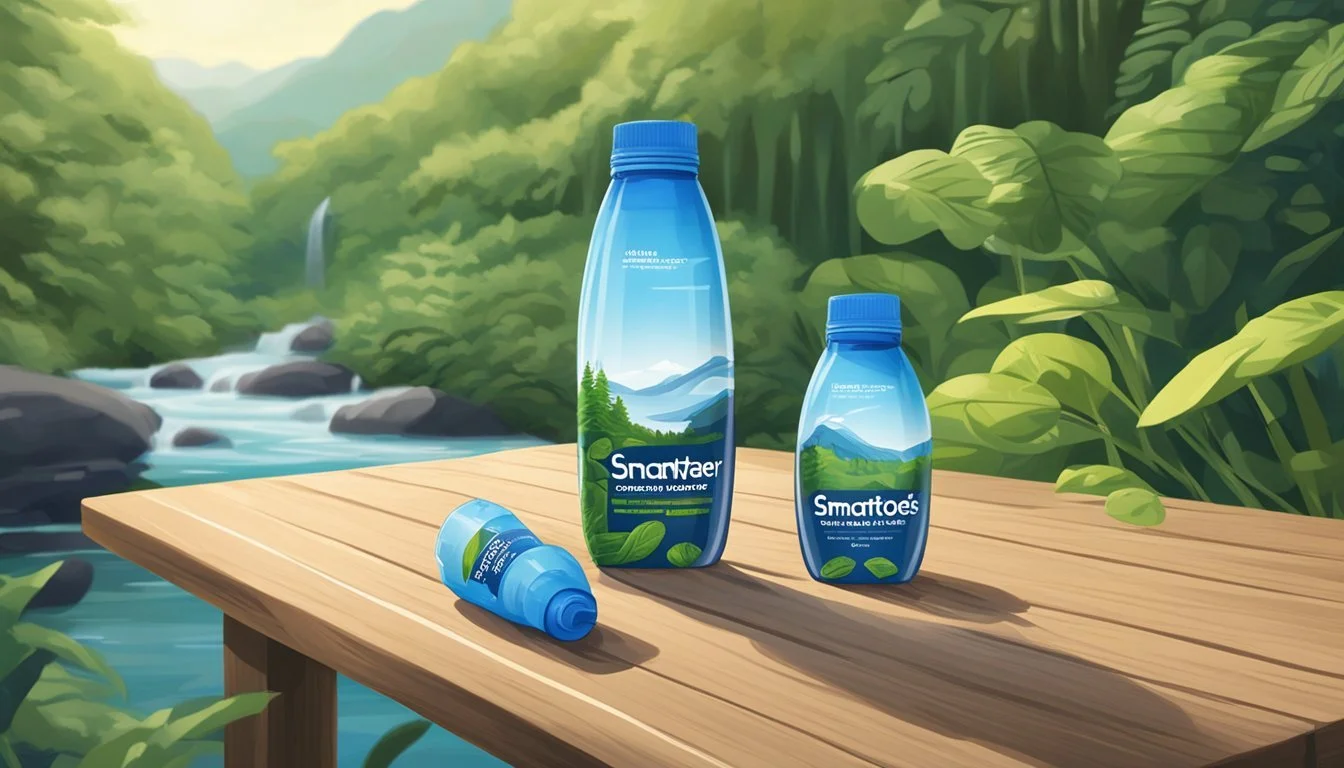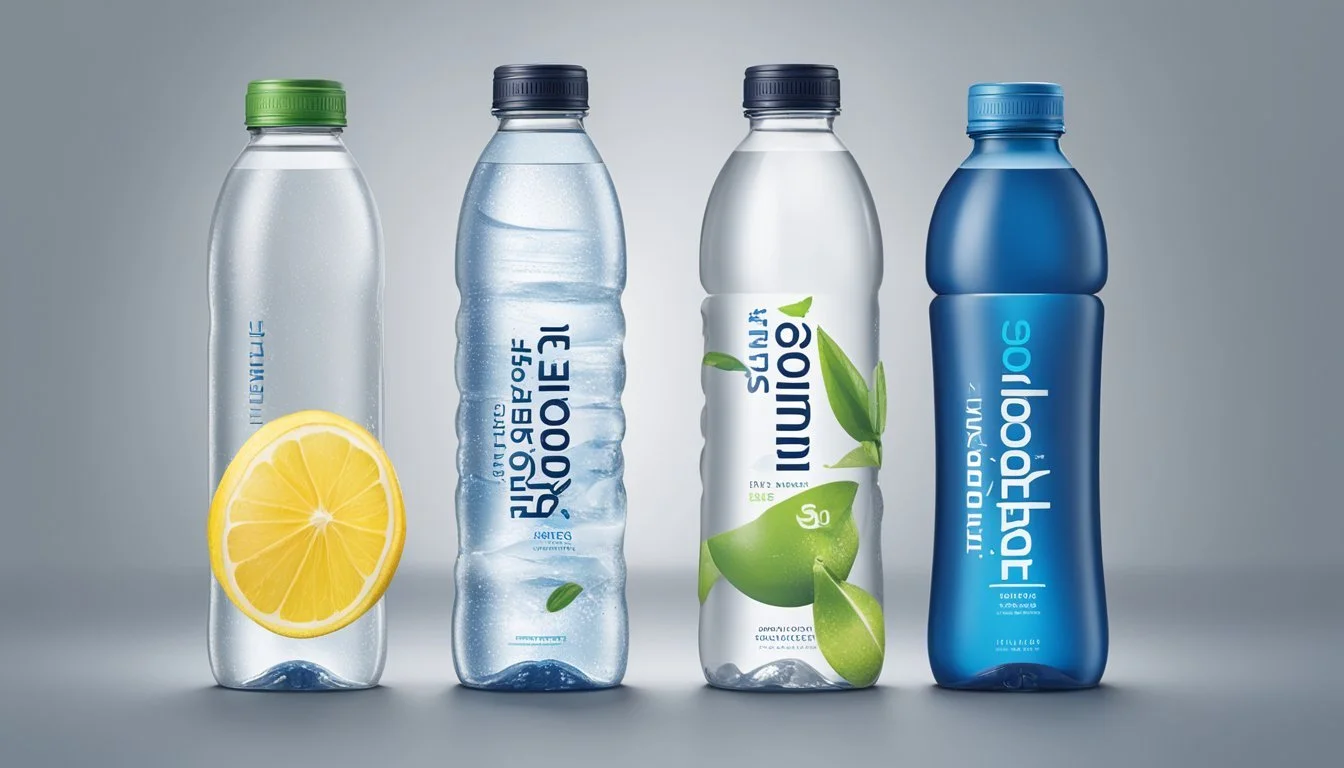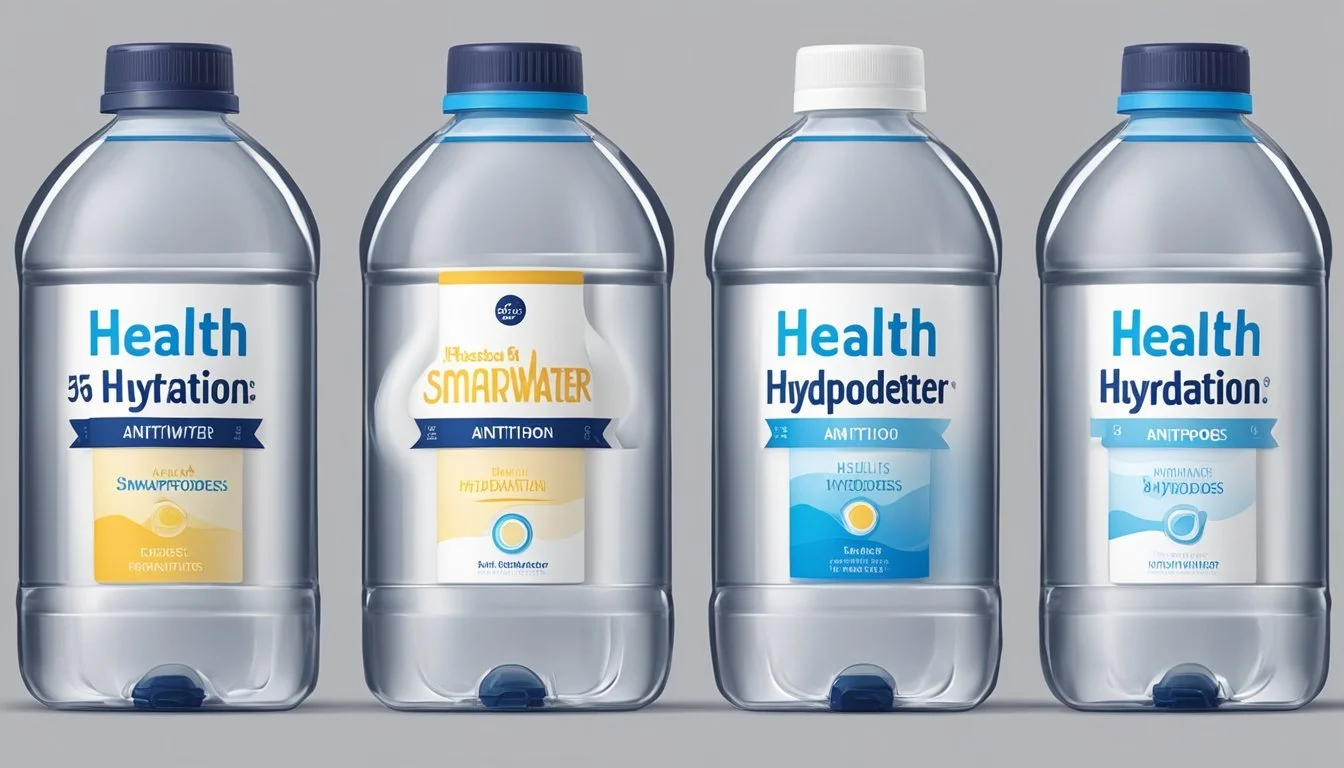Smartwater vs. Antipodes
Comparing the Best Bottled Water
When it comes to choosing between Smartwater and Antipodes, the decision hinges on several key factors, including mineral content, taste, and environmental impact. Smartwater is known for its vapor-distilled water enhanced with electrolytes, providing a crisp and clean taste favored by many. On the other hand, Antipodes prides itself on its naturally sourced still water from New Zealand, often celebrated for its purity and unique mineral composition.
For those prioritizing purity and environmental consciousness, Antipodes stands out with its eco-friendly glass bottles and commitment to sustainability. Smartwater, while convenient and widely available, may not offer the same level of environmental benefits but does provide a level of consistency and taste that some consumers prefer.
Both brands offer distinct advantages that cater to different needs and preferences. Whether you value the enhanced electrolytes in Smartwater or the natural, untouched quality of Antipodes, understanding what each brand brings to the table can help you make a more informed choice for your hydration needs.
Overview of Bottled Water
Bottled water comes in various forms, each catering to different preferences and health benefits. The bottled water market features numerous brands, each vying for consumer attention through unique qualities and claims.
Types of Bottled Water
Mineral Water: Sourced from mineral springs, this water contains essential minerals like calcium, magnesium, and potassium. Examples include Perrier and San Pellegrino. Mineral water is often favored for its taste and health benefits.
Purified Water: This type undergoes extensive filtration processes like reverse osmosis or distillation to remove impurities. Brands such as Aquafina and Dasani are well-known in this category. Purified water appeals to those seeking a consistently clean and neutral taste.
Natural Spring Water: Sourced from natural springs, this water is often bottled at the source and retains natural minerals. Brands like Evian and Fiji fall into this category. Spring water enthusiasts appreciate its pristine origin and mineral content.
Electrolyte-Enhanced Water: Designed for hydration and performance, this water includes added electrolytes like sodium and potassium. Smartwater and Core Hydration are popular choices. These brands target athletes and those needing enhanced hydration.
Bottled Water Market Leaders
Smartwater: Known for its vapor-distillation process and addition of electrolytes for taste, Smartwater promises purity and enhanced hydration. It’s a preferred choice for those desiring a clean taste with added benefits for active lifestyles.
Dasani: A well-recognized brand offering purified water with added minerals for flavor. With its wide availability and reliable quality, Dasani has a strong foothold in the market.
Evian: Sourced from the French Alps, Evian natural spring water is valued for its natural mineral composition and premium quality. It appeals to consumers looking for a natural and luxurious option.
Fiji Water: Bottled at the source in Fiji, this brand boasts a unique mineral profile and silica content, contributing to its smooth taste. It is often seen as an exotic and premium choice.
Aquafina: Produced through a rigorous purification process, Aquafina is another major player in the purified water segment. Known for its consistent quality and clean taste, it’s a staple for many households.
Smartwater: Brand Overview
Smartwater, a product of Glaceau, is owned by The Coca-Cola Company. It is known for its vapor-distilled process and the addition of electrolytes, which sets it apart from other bottled waters on the market.
Manufacturing Process
Smartwater's manufacturing process involves vapor-distillation. In this method, water is first evaporated into vapor and then condensed back into a liquid. This technique mimics the hydrologic cycle of rain formation. The process includes reverse osmosis, which ensures that impurities and contaminants are removed. This distillation results in pure and clean water, making Smartwater a popular choice for those seeking high-quality hydration.
Ingredients Profile
Smartwater is distinct due to its addition of electrolytes, specifically calcium chloride, magnesium chloride, and potassium bicarbonate. These electrolytes are added after the distillation process to enhance flavor and assist with rehydration. Despite popular belief, these added minerals are present only in trace amounts, and their primary benefit is the taste, rather than providing significant nutritional value. The water itself remains calorie-free and does not contain any sugars or artificial ingredients, aligning it with health-conscious consumers.
Product Range
Smartwater offers a variety of products tailored to different consumer preferences. The standard vapor-distilled water with electrolytes is the flagship product. They also offer Smartwater Alkaline, which has a higher pH level, designed for those preferring more alkaline water. Additionally, there is Smartwater Antioxidant, enriched with selenium for those seeking water with potential health benefits. The brand is available in multiple sizes, from small, portable bottles to larger, family-sized options, catering to various consumption needs.
Smartwater's combination of advanced distillation techniques and targeted additions like electrolytes have contributed to its strong market presence and preference among hydration-focused individuals.
Antipodes: Brand Overview
Antipodes is a premium bottled water brand known for its natural artesian water sourced from New Zealand. It is packaged in environmentally friendly glass bottles, making it appealing for both its quality and sustainability.
Source and Origin
Antipodes is sourced from an aquifer in New Zealand, renowned for its pure and natural water. This underground source is protected from contaminants, ensuring the water remains pristine.
The water is drawn from a depth of over 300 feet, where it has been naturally filtered through rock formations over centuries. This process contributes to its high purity and light taste, qualities that distinguish Antipodes in the bottled water market.
Mineral Content
The mineral composition of Antipodes is uniquely balanced, contributing to its crisp and clean flavor. It contains essential minerals like calcium, magnesium, and silica.
Calcium is beneficial for bone health, while magnesium aids in muscle function. Silica enhances skin health and elasticity.
This mineral profile not only adds health benefits but also gives the water a light and refreshing taste, appealing to discerning consumers who value both taste and wellness.
Packaging and Sustainability
Antipodes takes pride in its commitment to sustainability. The water is packaged exclusively in glass bottles, which are fully recyclable and have a lower environmental impact compared to plastic.
The brand also emphasizes minimalistic design in its packaging, focusing on elegance and simplicity. This choice reflects their dedication to both aesthetics and environmental consciousness.
Additionally, the company has implemented eco-friendly practices in its production process, further solidifying its reputation as an environmentally responsible brand.
Health and Hydration
Smartwater and Antipodes both aim to offer premium hydration options, but their benefits extend beyond just quenching thirst. They differ in their electrolyte content, mineral composition, and potential health advantages.
Hydration and Electrolytes
Smartwater is infused with electrolytes, which is marketed to enhance flavor and potentially improve hydration. These electrolytes include potassium, calcium, and magnesium. The added electrolytes can aid in maintaining the body's electrolyte balance, especially after intense physical activities.
Antipodes, in contrast, does not add electrolytes artificially. It is prized for its natural purity, sourced from deep aquifers in New Zealand. While it may not offer the same electrolyte boost as Smartwater, its natural composition ensures hydration without any additives.
Minerals and Health Benefits
Both brands provide essential minerals, but their sources and concentrations differ. Smartwater contains electrolytes to help regulate fluid balance, support muscle function, and possibly bolster the immune system.
Antipodes naturally contains minerals like calcium and magnesium. These minerals are known to support bone health, improve muscle function, and play a role in immune system support. The natural purity of Antipodes also means fewer contaminants, appealing to those concerned with overall health impacts.
Smartwater leverages its added minerals to differentiate itself in the market, but Antipodes’s natural profile presents a compelling alternative for those prioritizing natural, unaltered water sources.
Environmental Considerations
Choosing between bottled waters like Smartwater and Antipodes not only depends on the taste and health benefits but also on their environmental impact. Factors like the type of packaging and the broader environmental consequences of their production and disposal play a significant role.
Plastic vs Glass
Smartwater uses plastic bottles, which are often criticized for their environmental impact. Plastics can take hundreds of years to decompose and often contain chemicals like BPA. Despite recycling programs, a vast amount of plastic bottles still end up in landfills or oceans.
Antipodes, on the other hand, uses glass bottles. Glass is more sustainable because it is reusable and more easily recycled without degrading its quality. Glass, however, is heavier to transport, potentially leading to higher carbon emissions during shipping.
Environmental Impact of Bottled Water
The production of bottled water, whether in plastic or glass, has a considerable environmental footprint. The extraction of water, packaging production, and transportation all consume resources and generate emissions. Plastic production is particularly energy-intensive and releases harmful pollutants.
Antipodes tends to emphasize sustainable practices in its production and aims to minimize its carbon footprint. Smartwater focuses on using recycled plastic in its bottles but still contributes to the larger issue of plastic waste. The choice between the two involves weighing the benefits of glass reuse against the convenience and lighter weight of plastic.
Taste and Purity
Both Smartwater and Antipodes offer unique experiences in terms of taste and focus on high levels of purity to provide clean drinking water.
Factors Influencing Taste
The taste of bottled water can be influenced by its pH level, mineral content, and the filtration process. Smartwater is distilled, which means it undergoes vapor distillation to remove impurities. This results in a clean, crisp taste with minimal mineral content, appealing to those who prefer neutral-tasting water.
Antipodes, on the other hand, maintains a neutral to slightly alkaline pH, around 7.5 to 8.0. This allows for a more balanced and subtly velvety mouthfeel. Its texture is often attributed to its silica content, offering a smoother drinking experience.
Purity and Filtration Processes
Purity is a cornerstone for both Smartwater and Antipodes. Smartwater uses a rigorous filtration process, including vapor distillation, to eliminate impurities and ensure a high level of cleanliness. The final product is often described as distilled water, free from contaminants.
Antipodes also prioritizes purity through its source and filtration techniques. It replicates the taste of natural spring water while maintaining a crisper texture. Its neutral to slightly alkaline pH is achieved through natural mineral content, providing both purity and a refreshing sensation without the need for additional chemical treatments.
In summary, Smartwater and Antipodes focus on delivering exceptional taste and purity through different approaches. This makes them distinct in their offerings to consumers seeking clean, pleasant-tasting bottled water.
Economic Considerations
Economic aspects of bottled water involve evaluating both upfront costs and the perceived value. Comparing prices and assessing value for money will guide consumers in making an informed decision.
Comparing Prices
Smartwater and Antipodes are positioned at different price points. Smartwater generally falls within the mid-range price bracket for bottled water. It is widely available in various sizes, with prices ranging from approximately $1.50 to $3.00 per bottle, depending on the size and retailer.
Antipodes, known for its premium branding, typically has a higher price point. A standard 500ml bottle can cost between $3.00 and $4.50, largely due to its source and quality of water. This price difference is important for budget-conscious consumers and those seeking daily bottled water options.
Table: Price Comparison
Brand Price Range per Bottle (500ml) Smartwater $1.50 - $3.00 Antipodes $3.00 - $4.50
Value for Money
The value for money is not solely determined by the initial cost but also by the benefits and quality provided. Smartwater offers a clean and accessible option with added electrolytes, catering to consumers looking for hydration with a health-oriented angle. Its relative affordability also contributes to its wide appeal.
Antipodes prides itself on its natural, premium drinking experience with a unique velvety texture due to silica content. For consumers willing to pay more for high-quality, naturally sourced water, the higher cost may be justified by its premium features and unique taste.
List: Factors Affecting Value
Quality of Water: Antipodes’s natural spring source.
Additional Benefits: Smartwater’s added electrolytes.
Pricing: Smartwater’s affordability vs. Antipodes’s exclusivity.
Understanding these factors helps consumers decide which bottled water aligns better with their economic considerations and personal taste preferences.
Consumer Choice and Convenience
When comparing Smartwater and Antipodes, consumer choice often hinges on bottle design, usage, availability, and accessibility.
Bottle Design and Usage
Smartwater typically features a sleek, modern bottle with a simple yet elegant design. This design caters to on-the-go consumers and integrates well with busy lifestyles. The bottle is lightweight and made from recyclable plastic, which appeals to eco-conscious buyers.
In contrast, Antipodes offers a more luxurious glass bottle. This choice adds to the premium feel of the brand and enhances the drinking experience. The glass bottle not only provides aesthetic appeal but also maintains the water's purity by avoiding plastic contact.
Key Points:
Smartwater: Lightweight, recyclable plastic
Antipodes: Premium glass bottle
Convenience: Smartwater for portability, Antipodes for luxury
Availability and Accessibility
Smartwater is widely available across various grocery stores and convenience stores, making it extraordinarily accessible. It benefits from extensive distribution channels, ensuring that consumers can easily find it in urban and suburban areas alike. This broad availability supports its position as a convenient option for many consumers.
Antipodes, while also available in major retailers, tends to be found in more specialized stores and high-end grocery outlets. Its premium positioning reflects in somewhat limited accessibility compared to Smartwater. These factors make it an attractive choice for consumers seeking exclusivity and higher quality.
Key Points:
Smartwater: Widely available in grocery and convenience stores
Antipodes: Premium positioning, found in specialized retailers
Accessibility: Smartwater for ease of access, Antipodes for exclusivity
Comparative Analysis
This analysis evaluates Smartwater and Antipodes based on water quality and consumer perceptions. It provides insights to help readers decide which brand may best suit their needs.
Quality Assessment
Smartwater is known for its vapor-distilled purification process that removes impurities and adds electrolytes for taste. This results in a crisp, clean flavor profile.
Antipodes, sourced from New Zealand, boasts naturally high water quality with minimal processing. This artesian water is known for its purity and balanced mineral content.
Key Points:
Smartwater: Vapor-distilled, electrolyte-enhanced.
Antipodes: Natural artesian water, minimal processing.
Market Research and Consumer Reviews
Consumers find Smartwater highly accessible and appreciate its consistent quality. It is often praised for its sharp taste and refreshing feel.
Antipodes receives high marks for its premium quality and naturally balanced taste. Many consumers note its superior purity and elegant presentation.
Key Points:
Smartwater: Easily available, consistent positive feedback.
Antipodes: High purity, premium consumer preference.
More About Smartwater
Core Hydration vs Smartwater: Which Bottled Water is Better?
Icelandic Glacial vs Smartwater: Which Bottled Water is Better?
Mountain Valley Spring Water vs Smartwater: Which Bottled Water is Better?
Nestle Pure Life vs Smartwater: Which Bottled Water is Better?
San Pellegrino vs Smartwater: Which Bottled Water is Better?
Smartwater vs Aqua Carpatica: Which Bottled Water is Better?
Smartwater vs Cascade Mountain: Which Bottled Water is Better?
Smartwater vs Crystal Geyser: Which Bottled Water is Better?
Smartwater vs Hawaii Volcanic: Which Bottled Water is Better?
Smartwater vs Hawaiian Springs: Which Bottled Water is Better?
Smartwater vs Kirkland Signature: Which Bottled Water is Better?
Smartwater vs Richard's Rainwater: Which Bottled Water is Better?
Smartwater vs Solan de Cabras: Which Bottled Water is Better?
Smartwater vs Talking Rain AQA: Which Bottled Water is Better?
Smartwater vs Whole Foods 365: Which Bottled Water is Better?
Smartwater vs Whole Foods Italian Still Mineral water: Which Bottled Water is Better?
More About Antipodes
Antipodes vs Cascade Mountain: Which Bottled Water is Better?
Antipodes vs Hawaii Volcanic: Which Bottled Water is Better?
Antipodes vs Kirkland Signature: Which Bottled Water is Better?
Antipodes vs Richard's Rainwater: Which Bottled Water is Better?
Antipodes vs Solan de Cabras: Which Bottled Water is Better?
Antipodes vs Talking Rain AQA: Which Bottled Water is Better?
Antipodes vs Whole Foods 365: Which Bottled Water is Better?
Antipodes vs Whole Foods Italian Still Mineral water: Which Bottled Water is Better?
Hawaiian Springs vs Antipodes: Which Bottled Water is Better?
Icelandic Glacial vs Antipodes: Which Bottled Water is Better?
Mountain Valley Spring Water vs Antipodes: Which Bottled Water is Better?
Nestle Pure Life vs Antipodes: Which Bottled Water is Better?









